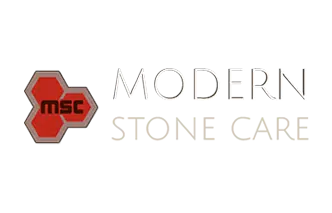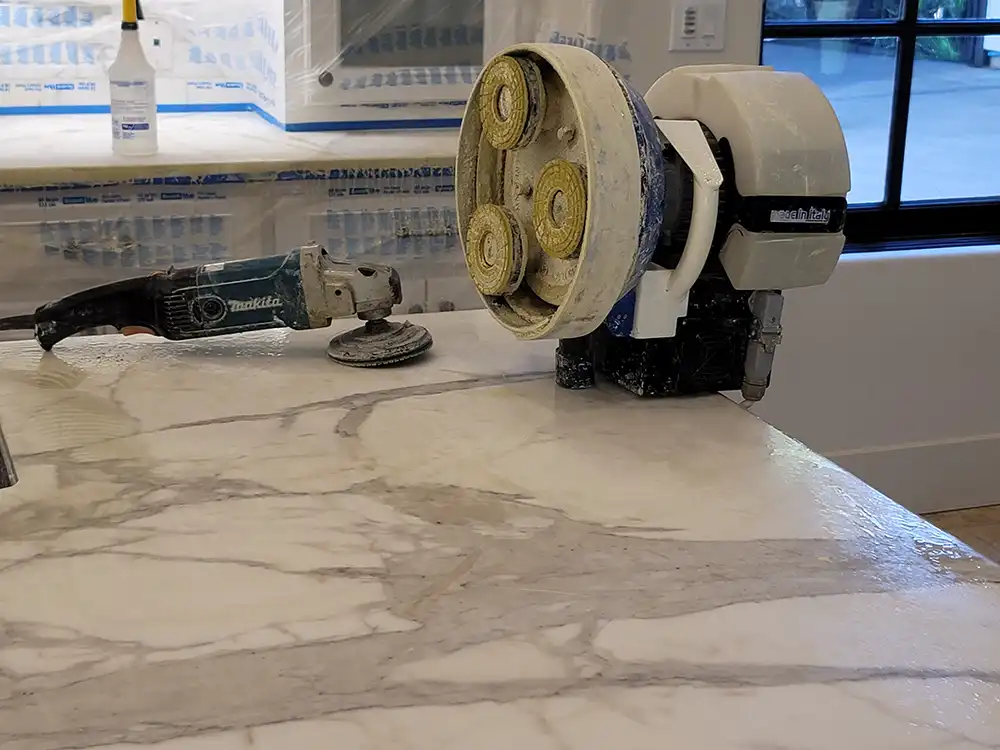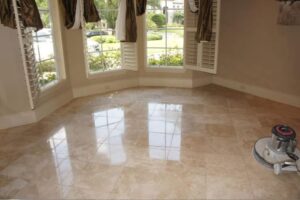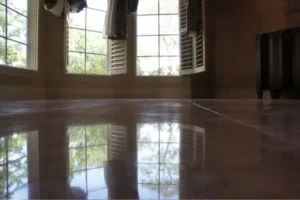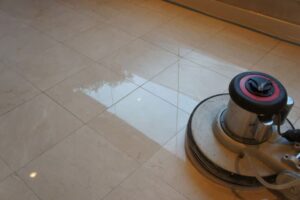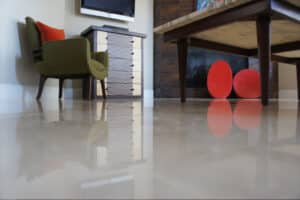Natural stone surfaces are an investment in both beauty and durability, commonly found in homes and businesses as countertops, floors, showers, and more. Over time, however, even the most resilient stone can lose its luster due to wear, scratches, stains, and environmental factors. Refinishing your stone is a key part of maintaining its appearance and function, helping to restore it to its original elegance.
Refinishing typically involves two main processes: honing and polishing. Each process serves a specific purpose and delivers different results based on the type of stone and the desired finish. This guide will explore the differences between honing and polishing, the stone types that can benefit from these treatments, and why working with professionals like Modern Stone Care in Houston ensures the best results.
We will also cover basic stone maintenance tips to help you protect your investment between professional services.
Understanding Honing vs. Polishing
Honing and polishing are both techniques used to refinish stone surfaces, but they achieve distinct outcomes. Understanding the differences between these processes can help you determine the best option for your stone surfaces.
Honing
Honing is a process that removes the surface layer of the stone, smoothing it to create a matte or satin finish. This technique uses abrasives to eliminate scratches, etching, and minor imperfections, resulting in a smooth, non-reflective surface.
Honing is ideal for:
- Reducing imperfections: It helps remove scratches, stains, and uneven textures.
- Low-maintenance finishes: A honed finish does not show fingerprints, smudges, or water spots as easily as polished stone.
- High-traffic areas: Honed surfaces are less slippery than polished ones, making them a practical choice for floors, showers, and outdoor areas.
The honing process provides a softer, more understated look, making it popular for casual or rustic spaces.
Polishing
Polishing enhances the stone’s natural beauty by creating a glossy, reflective finish. This process uses finer abrasives to smooth the surface and bring out the stone’s natural color and veining.
Polishing is ideal for:
- Enhancing appearance: A polished finish highlights the stone’s unique patterns and vibrant colors.
- Adding shine: Polished surfaces give a luxurious, high-end look.
- Water and stain resistance: The smooth surface of polished stone makes it more resistant to water absorption and stains when paired with proper sealing.
Polishing is often chosen for countertops, walls, and decorative features where an elegant, eye-catching finish is desired.
Which Stones Can Be Honed or Polished?
Not all stones are suitable for both honing and polishing, as the texture, hardness, and composition of the stone affect the results. Below is an overview of common stone types and the refinishing options available for each:
Marble
- Honing: Marble can be honed to create a soft, velvety finish that minimizes the visibility of etches and scratches. This is a great option for bathrooms and high-traffic floors.
- Polishing: Polished marble has a luxurious, glossy surface that highlights its veins and color variations, making it a popular choice for countertops and decorative features.
Granite
- Honing: Granite is less commonly honed, but it can be given a matte finish for a more subdued look.
- Polishing: Polished granite is a classic choice for countertops and backsplashes, offering a durable, reflective surface that enhances its natural patterns.
Limestone
- Honing: Limestone is typically honed to a matte finish, as its softer nature makes polishing less practical. Honing also reduces the visibility of imperfections.
Travertine
- Honing: Honing travertine creates a smooth, matte finish that complements its natural, earthy appearance.
- Polishing: Polished travertine provides a glossy finish but requires more maintenance due to its porous nature.
Slate
- Honing: Slate is generally honed to maintain its rugged, natural look while creating a smoother texture.
- Polishing: Polishing is less common for slate, as its natural cleft finish is part of its charm.
Quartzite
- Honing: Honed quartzite offers a softer, matte finish while maintaining its durability.
- Polishing: Polished quartzite enhances its vivid colors and patterns, making it a stunning choice for countertops and accent walls.
The Benefits of Working with a Professional Stone Company in Houston
Refinishing natural stone surfaces is a precise and labor-intensive process that requires specialized equipment and expertise. While DIY kits are available, they often fail to deliver the same level of quality and can lead to unintended damage. Here’s why working with an established Houston professional like Modern Stone Care is the best option:
Expertise in Stone Types
Different stones require different treatments, and our team understands the nuances of each material. From the soft texture of limestone to the durability of granite, we customize our approach to ensure optimal results.
Advanced Tools and Techniques
Professional honing and polishing require specialized machinery and diamond abrasives that are not available to most homeowners. Our advanced equipment allows us to achieve a level of precision and finish that DIY methods cannot replicate.
Comprehensive Services
Modern Stone Care offers a full range of stone care services, including cleaning, sealing, and restoration, ensuring that your surfaces are not only beautiful but also well-protected against future damage.
Time and Cost Efficiency
DIY refinishing can be time-consuming and costly if mistakes are made. Professionals save you time and money by delivering high-quality results in a timely manner, without the risk of damaging your stone.
Long-Lasting Results
Professional refinishing ensures a durable finish that stands up to daily wear, reducing the need for frequent touch-ups or repairs.
Stone Maintenance Tips for Prolonging Beauty and Durability
While professional honing and polishing are critical for restoring the brilliance of your natural stone surfaces, routine maintenance can significantly extend their lifespan and ensure they maintain their visual appeal between professional treatments. By following a few key practices, you can safeguard your investment and keep your stone surfaces in excellent condition.
Regular cleaning is one of the simplest and most effective ways to care for your stone. Always use a pH-neutral stone cleaner specifically designed for natural stone to remove dirt and grime. This ensures that the surface is not damaged by acidic or abrasive ingredients, which can etch or scratch the stone. For daily spills, it is crucial to clean them immediately, particularly on porous stones like marble and travertine, which are more prone to staining. Prompt cleanup prevents liquids from seeping into the surface and causing permanent discoloration.
Sealing is another essential aspect of stone care. A high-quality sealer acts as a protective barrier, guarding against moisture, bacteria, and stains. However, sealers do not last forever and need periodic reapplication, depending on the type of stone and how heavily it is used. To determine if your stone requires resealing, you can perform a simple water test. Place a few drops of water on the surface and observe how quickly it absorbs. If the water is absorbed within a few minutes, it’s time to reseal. Regular sealing not only protects the stone but also makes it easier to clean.
It is equally important to avoid harsh chemicals when maintaining your stone surfaces. Substances like vinegar, bleach, or ammonia can degrade the surface, strip away protective sealants, and lead to discoloration. Instead, stick to gentle cleaning solutions that are safe for natural stone to prevent unnecessary damage.
Taking precautions to minimize physical wear is another effective way to maintain your stone. On countertops, use coasters, trivets, and cutting boards to protect the surface from scratches, heat, and stains. For stone floors in high-traffic areas, placing mats or rugs can help reduce the wear and tear caused by dirt and foot traffic. These simple measures prevent damage and reduce the need for more frequent refinishing.
Finally, professional maintenance should be a regular part of your stone care routine. Over time, even with diligent cleaning and sealing, scratches, stains, and etches may accumulate on the surface. Scheduling periodic professional services, such as deep cleaning, honing, or polishing, ensures that your stone surfaces retain their original beauty and structural integrity. Professionals have the tools, expertise, and products to address deeper issues that cannot be resolved with at-home care, making this a critical step in preserving the longevity of your stone.
By incorporating these practices into your regular maintenance routine, you can keep your natural stone surfaces looking pristine and protected for years to come, while minimizing the need for extensive repairs or refinishing.
Choosing Modern Stone Care for Refinishing Stone Surfaces in Houston
Modern Stone Care in Houston is a trusted provider of natural stone care services, specializing in honing, polishing, cleaning, sealing, and restoration. We are dedicated to helping homeowners and businesses protect and enhance their stone surfaces with high-quality, professional solutions.
Our approach combines extensive knowledge, advanced tools, and a commitment to customer satisfaction. Whether your marble countertop needs a glossy polish, your travertine floor requires honing, or your granite surface needs resealing, we have the expertise to deliver exceptional results.
By choosing Modern Stone Care, you can rest assured that your stone surfaces are in capable hands. Contact us today to schedule a consultation and learn more about how we can help you restore and maintain the beauty of your natural stone surfaces.
Modern Stone Care
970 Bunker Hill Rd
Houston, TX 77024
(832) 814–2041
View our Google Business Listing
View our Facebook Page
